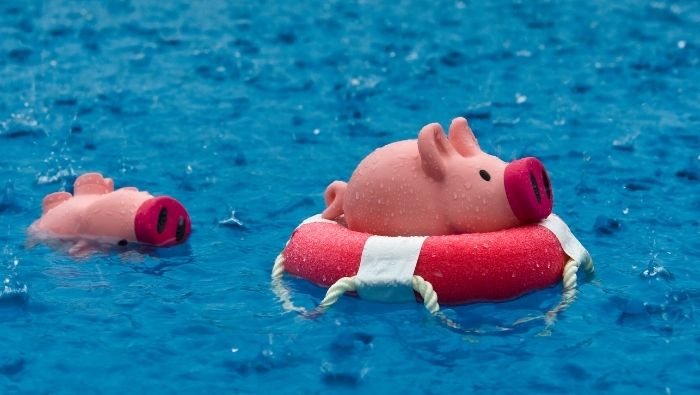A Time To Prioritize Savings Over Debt Repayment
The financial benefits of saving vs. paying down debt can vary depending on your personal circumstances and the economy. But here is one time you should almost always prioritize savings over debt repayment.
by Gary Foreman

Experts are predicting a rough job market this year. So how can you prepare when you do sense job loss is looming?
If you’re concerned that your income could be cut or cut off, take these steps to shift your savings and debt repayment priorities so you can better stay afloat in rough financial waters.
If Your Income Is Drastically Cut
Let’s look at a situation where your income is cut and is not sufficient to meet all of your bills. And let’s assume that you have a mortgage, one car loan and various credit card balances.
Talk With Your Creditors
After a cut in income, the first thing you should do is to talk with anyone that you owe money to. Explain that your income has been cut, and you need an adjustment to your payment schedule. Some companies will work with you. Others will not.
Prioritize Bill Payment
Next, you need to decide in what order you’ll pay your bills. You already know that your income is not high enough to pay all the bills. So, someone will not get paid.
Naturally, you’d want to pay the most important bills first. That would be your mortgage. Right behind it would be groceries to feed your family. A roof over your head and food in your tummy are pretty essential.
Sign Up for Savings
Subscribe to get money-saving content by email that can help you stretch your dollars further.
Twice each week, you'll receive articles and tips that can help you free up and keep more of your hard-earned money, even on the tightest of budgets.
We respect your privacy. Unsubscribe at any time.
How Will You Cover Remaining Bills?
OK, now for the challenging part. The money that’s left isn’t enough to cover the car and credit card payments. What should you do?
What would happen if you fail to pay? If you don’t pay your auto loan after a few months, they’ll repossess your ride. That could make job hunting more difficult. Not a pleasant thought.
On the other hand, if you don’t pay your credit card bills, you can apply for credit counseling. Typically, they’ll reduce your interest rate and lower your minimum monthly payment. The bad news is that your credit score will be negatively affected and you’ll be expected to quit using the cards.
Not being able to use credit cards will be inconvenient. You’ll need to use cash to buy groceries and other essential items. But that can be done.
A Strategy for Today’s Extra Savings When Possible Income Loss Is on the Horizon
So logic tells us that it’s wisest to pay your auto loan before your credit card bills. But what does that have to do with today’s extra savings at a time when you are able to meet all your obligations?
The next time you sense you’re facing a potential loss of income, it may not be best to use that extra income to pay off the most expensive (i.e., credit card) debt today. The reason is simple. In a crisis, you’d much rather have that extra money tucked in a savings account or CD to be used to make mortgage and car payments later. The more money you have in savings, the longer you can hang on with a reduced income.
There’s a cost to this strategy. Instead of retiring a 21% APR credit card debt, you’ll be earning less than 5% on the savings. So it’s fairly expensive insurance. But, if you think that there’s a good chance that you could see a significant cut in pay or lose your job, it might be something to consider until the danger passes. Remember that if you lose your job, you won’t get a “do-over.” Having some money saved could be essential to your family’s financial stability.
Reviewed May 2025
About the Author
Gary Foreman is the founder and former editor of The Dollar Stretcher. He has been featured in MSN Money, Yahoo Finance, Fox Business, The Nightly Business Report, US News Money, Credit.com and CreditCards.com.
Sign Up for Savings
Subscribe to get money-saving content by email that can help you stretch your dollars further.
Twice each week, you'll receive articles and tips that can help you free up and keep more of your hard-earned money, even on the tightest of budgets.
We respect your privacy. Unsubscribe at any time.

